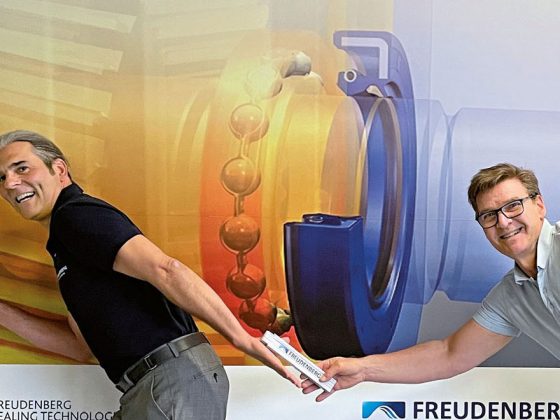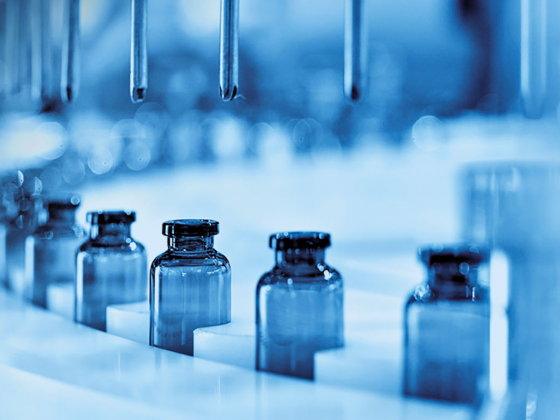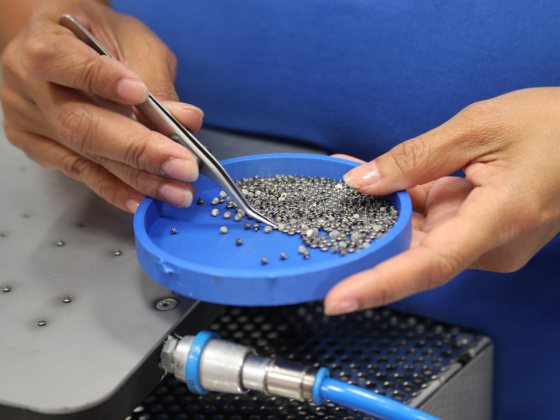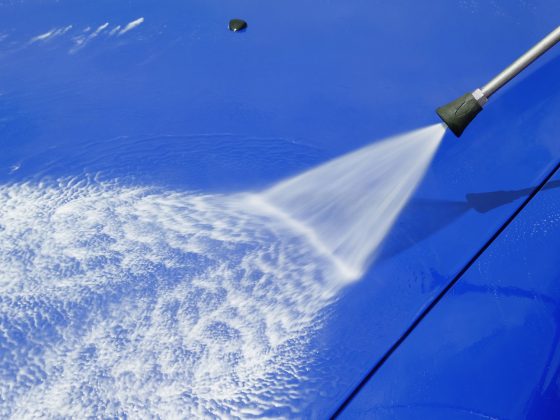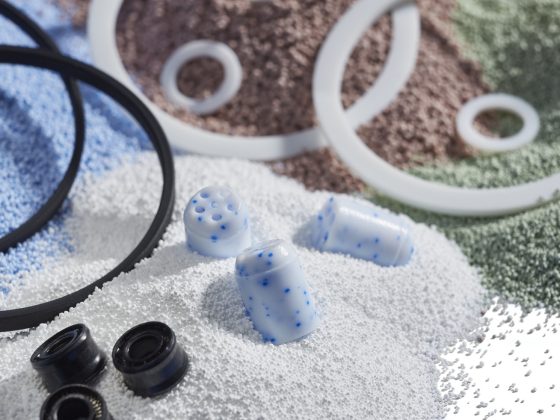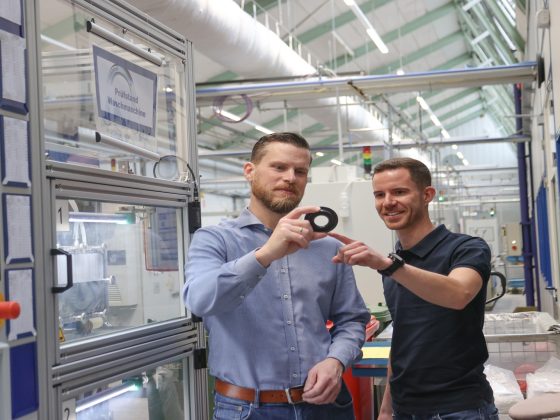
Production
TEMPERATURES AND PRESSURES
The organic synthesis process generates high temperatures and pressures. For instance, very low temperatures can occur in the production of vaccines or proteins, as well as in the separation of blood. That requires seals that remain very flexible under cold conditions.
CIP/SIP RESISTANCE
The sealing materials must be able to withstand aggressive media such as CIP/SIP cleaning agents.
POWDERY MEDIA
Seals often must also be able to withstand powdery media, such as those found in tablet presses.
AGGRESSIVE CHEMICALS
Chemicals and toxic substances, which the seals must be able to withstand, are used in the production of chemically manufactured agents, API (Active Pharmaceutical Ingredients) or in vivo diagnostics (contrast agents and biomarkers).
CONFORMITIES AND APPROVALS
The seals are in direct contact with the high-purity process medium, therefore they must have special approvals and conformities for the pharmaceutical industry, such as USP Class VI and FDA.
EXTRACTABLES
Pharmaceutical manufacturers are obliged to conduct extractables studies due to the high purity requirements. Extractables are chemical compounds that are extracted from a packaging material under certain conditions (e. g. at elevated temperature or with different solvents) and migrate into the product.
DIRECT CONTACT WITH HIGH PURITY PRODUCTS
The synthesis of pharmaceuticals in the pharmaceutical industry is not allowed to produce any unwanted by-products or allow foreign substances to enter the product, as the purity requirements for the process and the product are particularly high. Sealing solutions are needed that reliably prevent contamination and are allowed to come into contact with the product without causing concern.
HYGIENIC DESIGN
Due to the strict hygiene regulations, seals should be constructed according to hygienic design to ensure reliable cleanability of the equipment and thus, sterile processes.
PURIFIED WATER (WFI AND DI WATER)
Both WFI water (water for injection, demineralized ultrapure water) and DI water (deionised water) place enormous demands on elastomeric materials. Here sealing materials must be used that are resistant to these media in long-term use.
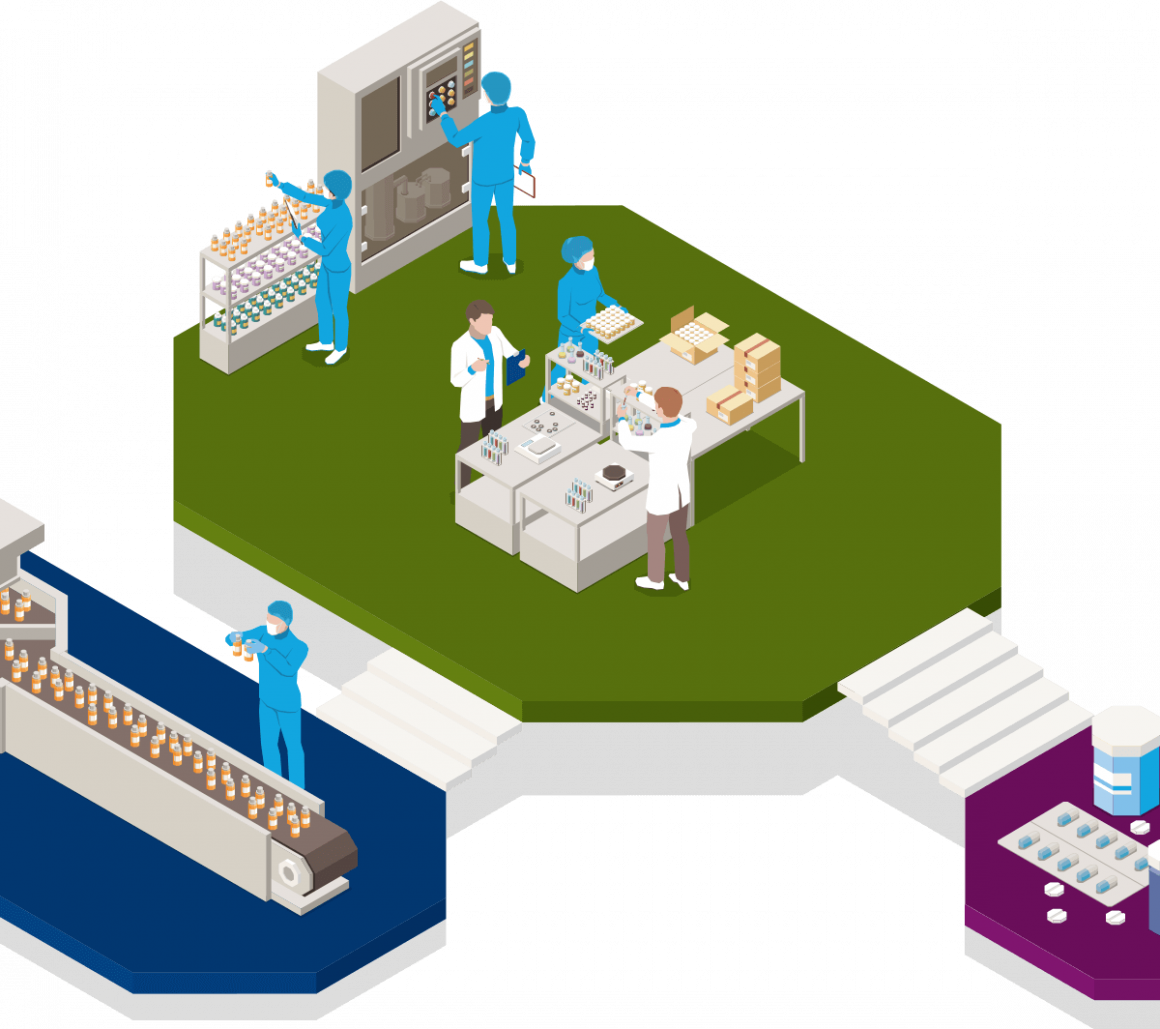
Quality Control And Packaging
TRACEABILITY
Special attention is paid to the documentation of processes to ensure the purity of a batch. Seals therefore require a safety marking (e. g. laser marking), which provides information about the article description, type, dimensions, elastomer material, date of manufacture and serial number, thus enabling reliable traceability of the seals.
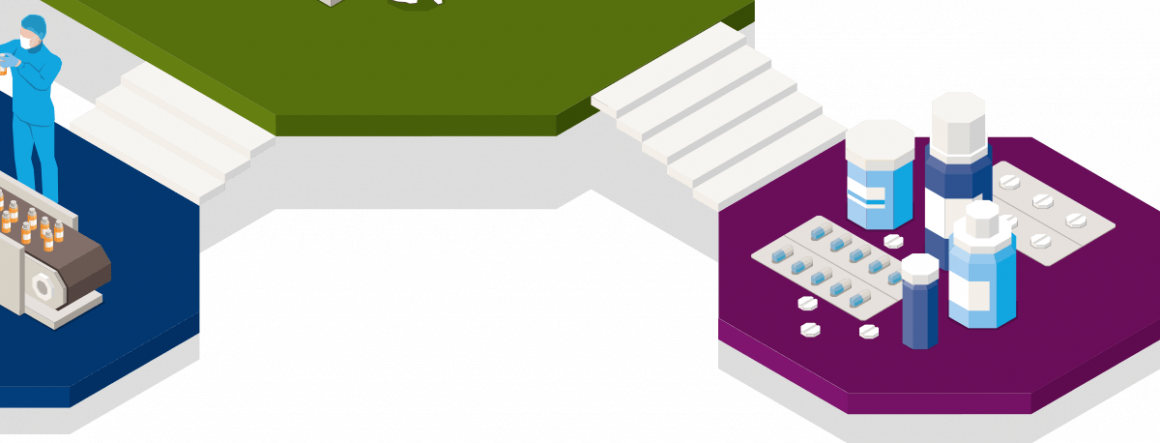
Ultrapure End-product
LEACHABLES …
… are chemical compounds that separate from packaging materials, coatings etc. over the lifetime of the product under normal environmental conditions. Pharmaceutical manufacturers are required to conduct extensive studies on leachables. The goal is to ensure that no harmful components of an elastomeric mixture are released from the packaging materials and transferred into the product during storage.

